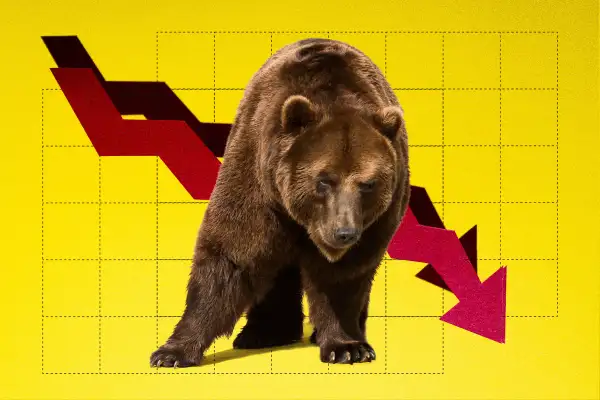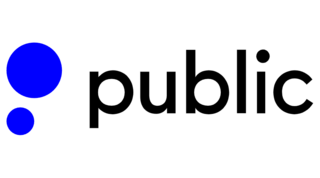Does the Slump in Consumer Stocks Mean We're in a Bear Market?
Money is not a client of any investment adviser featured on this page. The information provided on this page is for educational purposes only and is not intended as investment advice. Money does not offer advisory services.

Last week, the Nasdaq registered its worst weekly performance since April. Much of the selling was sparked by concerns about historically high valuations, an evolving AI bubble and heightened market concentrations.
Since the end of the last bear market in October 2022, the S&P 500 has been led higher by the enormous gains of tech and communication services — sectors that are home to five of the Magnificent Seven companies, many of which absorbed significant losses in last week's sell-off.
Those high-flying sectors aside, some pundits are now worried about consumer stocks. While companies with AI exposure are in the limelight, shares of many firms operating in price-sensitive corners of the market have now posted losses that surpass pullbacks and corrections.
"Anything consumer-oriented has seemed to have entered bear market territory," investing personality and former hedge fund manager Jim Cramer posted Nov. 4 on X.
Big Tech gains have overshadowed underperforming stocks
In 2023 and 2024, the S&P 500's two best-performing sectors — tech and communication services — finished ahead of the index's other nine sectors with an average annual gain of 47.6%.
In 2025, little has changed. Tech's year-to-date gain is 22.3%, while communication services' is 24.5%. Broadly, the S&P 500 is up 14.81%. Those gains are notably lower than the past two years, but analysts generally believe the current bull market can carry into 2026 before facing significant corrections.
"[The AI trade] is still in really good shape," Tom Lee, managing partner at Fundstrat Global Advisors, told CNBC on Monday. "There's a lot of visibility for AI spending... and there's still a payoff coming."
Whether stocks heavily leveraged to AI are overpriced from a valuation standpoint remains a matter of debate. Still, they've performed well this year. Palantir, for instance, is up 129% despite its recent sell-off.
But those enormous gains have concealed underperforming facets of the market — specifically, consumer stocks, which tell a different story.
Consumer stocks are in retreat
Consumer staples (products and services essential for daily life) and consumer discretionary stocks (nonessential goods and services) historically have an inverse relationship. The former tend to perform well during economic downturns, while the latter tend to perform well during periods of economic growth.
That was the case in the first half of 2025, which has resulted in consumer staples just breaking even with a 1.28% gain. Consumer discretionary is up 4.61%, which — to a degree — can be attributed to the outsized performances of just two stocks.
Amazon and Tesla — the two members of the Magnificent Seven that aren't in tech and communication services — fall under the consumer discretionary umbrella. Both have performed well since their year-to-date lows, with Amazon up 42% since April and Tesla up 81% since April.
But those two stocks make up around 45% of the sector's weighting, leaving 55% for the other 48 consumer discretionary stocks. That can skew performance results. Removing Amazon and Tesla from the equation, there are some alarming losses across the sector, specifically when zooming into particular industries.
Consumer stocks, particularly in the discretionary space, are considered a bellwether for the economy as they're sensitive to consumer spending habits.
When spending slows, it can adversely affect these corners of the market. And that's what's happening now.
"Looking at the sector broadly, it's roughly flat," says David Lundgren, chief market strategist at Little Harbor Advisors. "But laggards have been apparel, durables and retail."
Price-sensitive corners of the market are struggling
Durable goods, including refrigerators, dishwashers, washing machines and ovens, have been hit hard by the president's aggressive tariffs. That has impacted the stocks of companies like Whirlpool, which is down 50% from its year-to-date high.
Furniture is another pain point for durable goods: La-Z-Boy is down 36% since its peak earlier this year.
"The consumer discretionary sector has shown the second-largest percentage of below-expectation earnings," says Lundgren. "This combination of relatively poor earnings and mediocre stock price performance suggests that the sector will potentially underperform through [the fourth quarter]."
Apparel has also been grappling with tariffs. Nike and Adidas are down 20% and 30%, respectively, from their 2025 highs, while Abercrombie & Fitch is down 56%.
Then there are leisure stocks. From their year-to-date highs, Royal Caribbean is down 30%, Wyndham Hotels & Resorts is down 35%, Caesars Entertainment is down 50% and Six Flags is down 69% as international travel to the U.S. has fallen sharply this year.
It's not much rosier for retail, either. Petco is down 30% from its peak, Peloton is down 28%, Floor & Decor is down 42% and Deckers Outdoor is down 63%. Fast-casual restaurants are also feeling the pinch. Shake Shack is down 36% from this year's high, while Chipotle is down 47%.
This is why diversification is important. Investors who are enduring losses in consumer discretionary stocks won't feel as much pain if they hedge their portfolios appropriately.
"It's preferred that consumer stocks participate in — if not lead — bull markets," Lundgren says. "But what's most important is that leadership still has a cyclical, pro-growth tilt to it."
More from Money:
Why Investors Are Piling Money Into ETFs at a Record Pace
Nvidia's $5 Trillion Valuation Could Pose a Risk to Your Stock Portfolio
We Asked ChatGPT and Gemini Which Stocks to Buy for November






